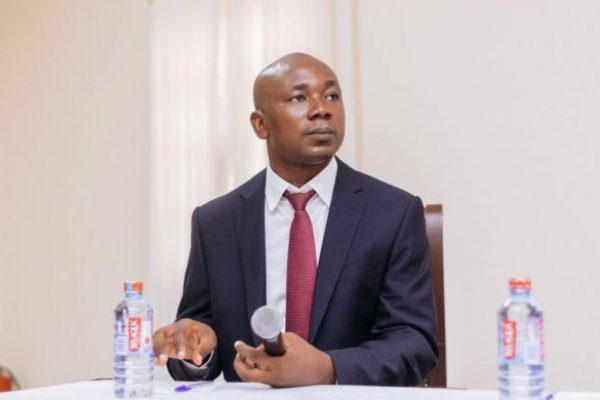Economist and professor of finance at the University of Ghana, Prof Godfred Bokpin, has asserted that the cedi can only be stabilised temporarily from further depreciation in its performance against major foreign currencies but continue slipping as has been the trajectory for decades.
He attributes this trend to the lack of a robust macroeconomic policy support for the cedi.
Speaking on Joy FM's Super Morning Show on Monday, May 13, Prof Bokpin explained that the cedi has persistently suffered depreciation since its introduction in July 1965.
He anticipates intermittent periods of relative stability but underscores the likelihood of continued depreciation, even with optimal economic measures in place.
“If we do everything right we will still expect that the cedi will depreciate by a certain margin given the relative strength of the economy.
“It's a shame that we haven't been able to provide the cedi with the necessary support through sound macroeconomics policy making, including responsible fiscal management and prudent monetary policy.
“As a result, we've denied the cedi some basic rights and then expect it to perform magic, when in reality, the cedi's behaviour is a reflection of weak underlying fundamentals”explained.
In referring to the Vice President, Dr Mahamudu Bawumia's popular phrase about the cedi's depreciation, Prof Bokpin argued that the exchange rate will expose the currency as long as the fundamentals of the economy remain weak.
Prof Bokpin mentioned that in 1964, Ghana had inflation of less than 1%. At that time, Ghana did not have its national currency and used the British West African pound, limiting its monetary control.
He said even after gaining independence, printing currency remained out of reach, until in July 1965 when the cedi was introduced. However, inflation has been a continuous challenge since then.
As of today, Monday, May 13, one US dollar averages GH¢14.5 according to Joy Business.
Analysts are envisaging a continuous weakening trajectory of the local currency as foreign exchange demand-supply disparity remains substantial.
They, however, anticipate improved liquidity conditions towards the end of quarter two of 2024 after the International Monetary Fund (IMF) board approves the second review of Ghana’s programme. This will lead to a tranche disbursement of US$360 million under the IMF programme.
Latest Stories
-
Trump picks Pam Bondi as attorney general after Matt Gaetz withdraws
18 mins -
Providing quality seeds to farmers is first step towards achieving food security in Ghana
29 mins -
‘Restoring forests or ravaging Ghana’s green heritage?’ – Coalition questions Akufo-Addo’s COP 29 claims
2 hours -
Give direct access to Global Health Fund – Civil Society calls allocations
3 hours -
Trudeau plays Santa with seasonal tax break
4 hours -
Prince Harry jokes in tattoo sketch for Invictus
4 hours -
Akufo-Addo commissions 200MW plant to boost economic growth
4 hours -
Smallholder farmers to make use of Ghana Commodity Exchange
4 hours -
I want to focus more on my education – Chidimma Adetshina quits pageantry
5 hours -
Priest replaced after Sabrina Carpenter shoots music video in his church
5 hours -
Duct-taped banana artwork sells for $6.2m in NYC
5 hours -
Arrest warrants issued for Netanyahu, Gallant and Hamas commander over alleged war crimes
5 hours -
Actors Jonathan Majors and Meagan Good are engaged
5 hours -
Expired rice saga: A ‘best before date’ can be extended – Food and Agriculture Engineer
5 hours -
Why I rejected Range Rover gift from a man – Tiwa Savage
5 hours

